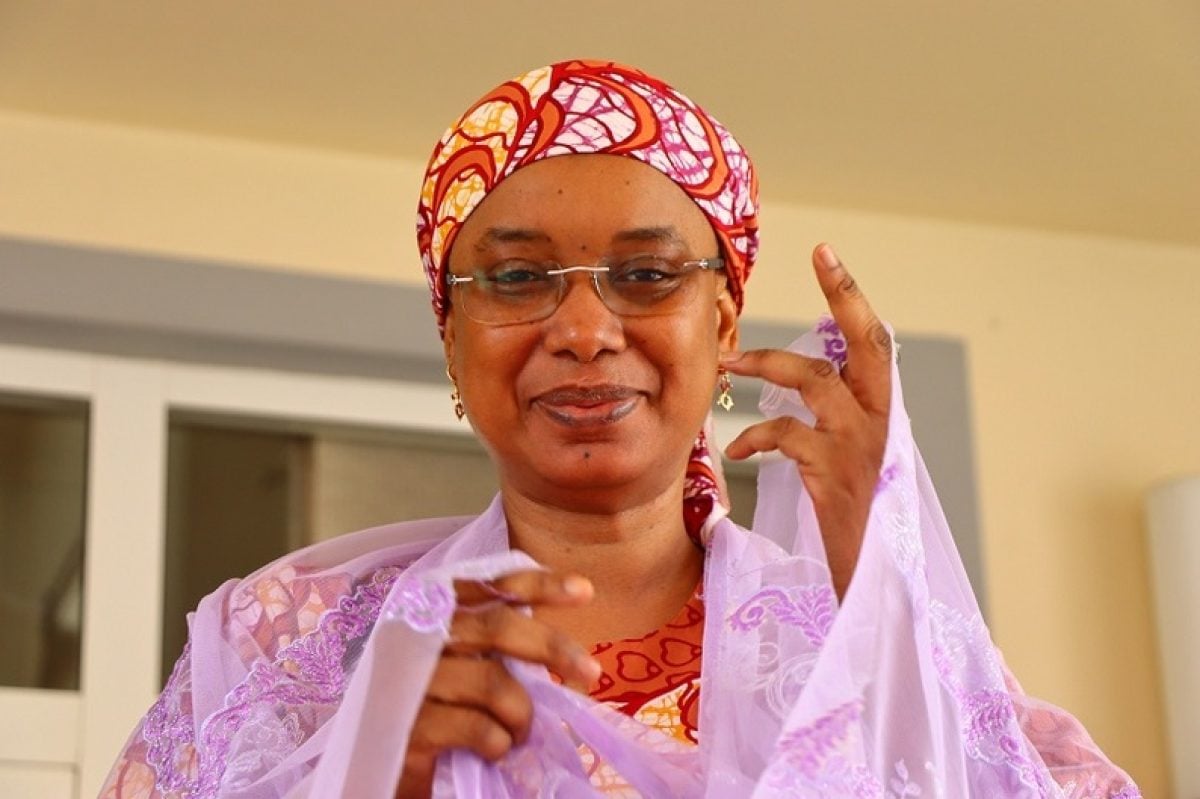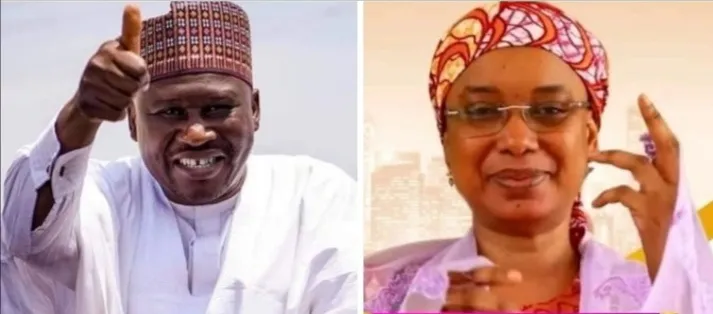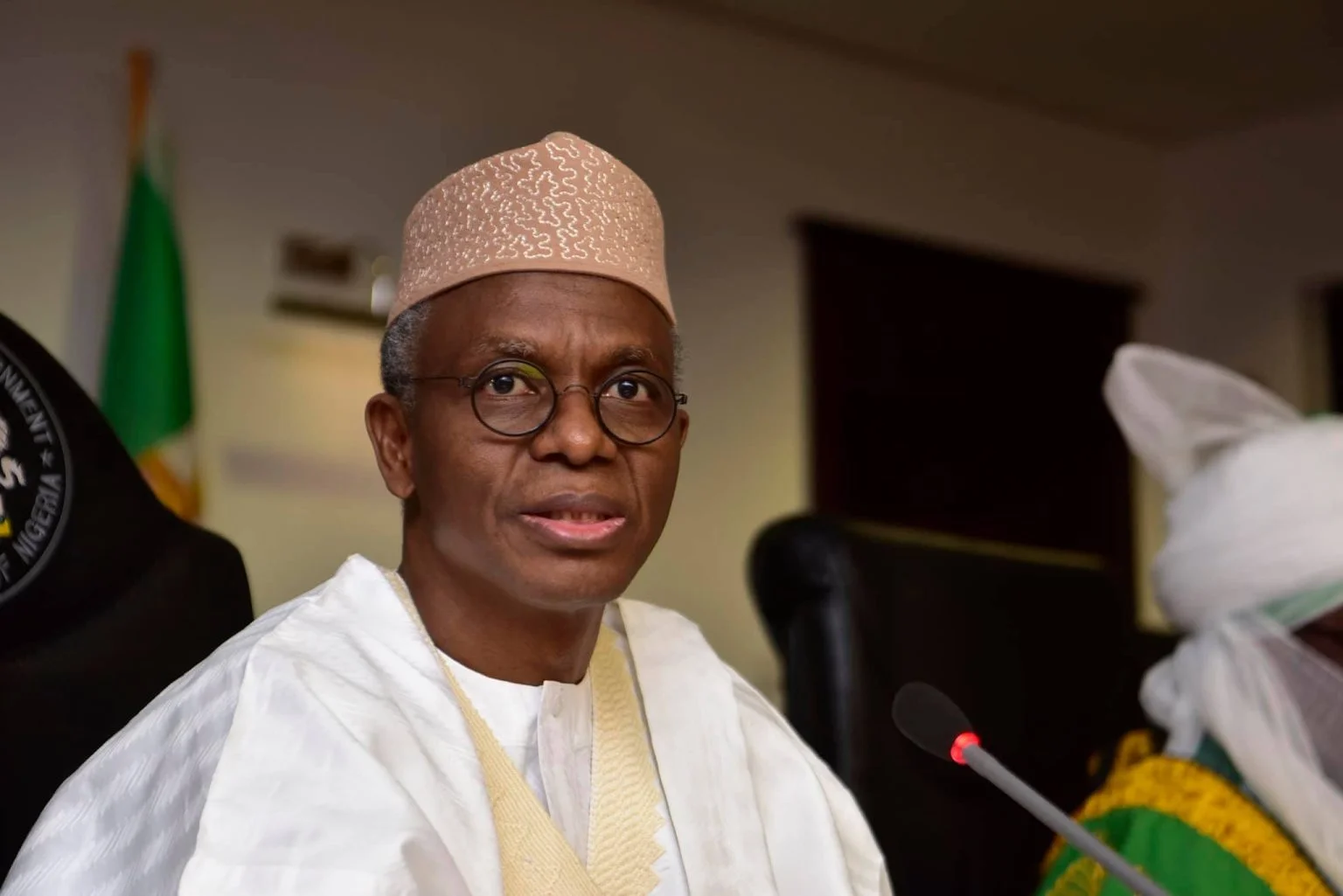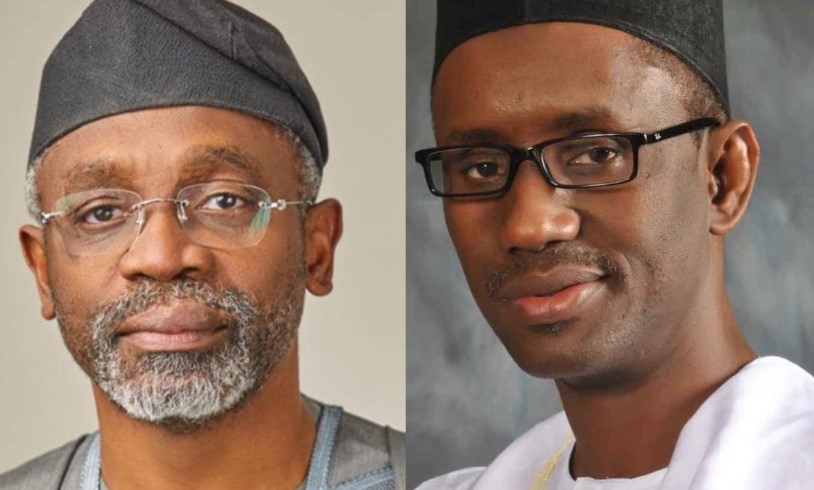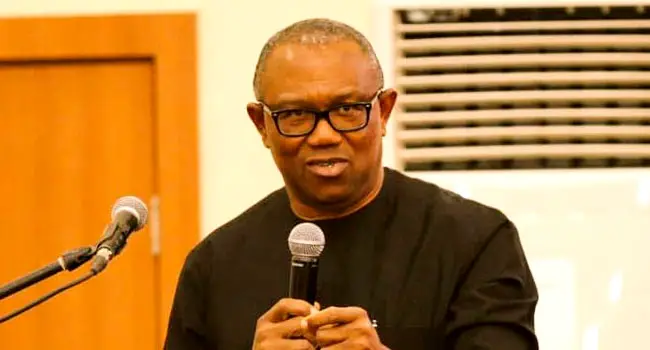How Binani almost diminished Fintiri’s influence in Adamawa
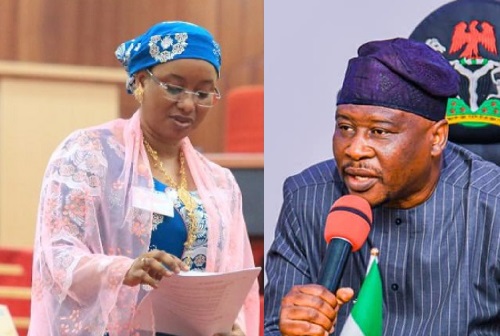
The performance of Senator Aishatu Dahiru Ahmed, popularly known as Binani, in the just concluded governorship election in Adamawa State symbolises a ray of hope for women in politics. But Binani is not an exception in Adamawa politics; before her others like Grace Bent, Wilbena Jackson and Binta Masi have blazed the trail. The Nation examines the circumstances surrounding such performance by women in politics in a region where the social landscape is predominantly conservative and male-dominated.

From relative obscurity, Senator Aishatu Dahiru Ahmed, popularly known as Binani, has become a household name in Nigeria. The hard-fighting Binani represents the closest shot at electing a female governor in Nigeria. After the March 18 governorship election was declared inconclusive in Adamawa State, Governor Ahmadu Fintiri of the Peoples’ Democratic Party (PDP) polled 430,788 votes to Binani’s 398,788 votes. There were nevertheless high hopes that she could surmount the odds to become the first female governor by defeating the PDP candidate during the April 15 supplementary elections in 69 polling units where the exercise was cancelled.
But, that was a tall order because the election had almost been won by Fintiri. Binani trailed the incumbent governor with 31,249 votes, after the first phase of the election. She will have required nothing short of a miracle to win because it would have entailed having almost a 100 per cent turnout in the supplementary poll and the APC candidate securing at least 90 per cent of the votes. The 69 polling units have 42,785 registered voters but only 36,935 of them have collected their Permanent Voters’ Cards (PVCs).
Observers say Governor Fintiri’s victory was not an easy one. The people of Adamawa are not too happy with his performance so far. Besides, some critical stakeholders, it is said, left the party because of his poor reward system. The aggrieved stakeholders include Senator Abbo Ishaku, former Governor Bala Ngilari, and a former federal lawmaker, Senator Bent Grace.

Regardless of the outcome, the 51-year-old APC candidate’s performance in the just concluded election symbolizes a ray of hope for women in politics. Nigeria has been recording low participation of women in both elective and appointive positions over the years; a development that constitutes a growing concern for many Nigerians. For instance, only three women out of the 109 senators-elect in the 2023 general election are female; in contrast to the seven members in the outgoing 9th National Assembly. Aside from two – Mrs Oluremi Tinubu, the wife of the President-elect, Bola Tinubu, and Binani– who did not seek re-election, the others lost their bids to return.
It is somewhat ironic, in the view of many observers, that it took a female governorship candidate from the North, an ultra-conservative society where women are usually not to be seen or heard in public, to come close to winning the election. The social landscape of the region is traditional, conservative and male-dominated. As a result, it is a context in which women have long been marginalized from political and electoral processes. Since the return to civil rule in 1999, 15 female candidates from the South have been elected deputy governors in the country; out of a total of 17 in the entire country. But, none have had the chance to succeed their principals as governor. That is why Nigerians across party lines hailed Binani’s effort, despite coming from a region that has had lesser opportunities for women’s representation in politics.
Adamawa State, in the Northeast geopolitical zone, appears to be an exception in the North. The state has been experiencing an increase in the number of women participating actively in politics for some time. Before winning the election to represent Adamawa Central in the National Assembly, Binani represented Yola North/Yola South/Girei Federal Constituency in the Green Chamber during the 7th Assembly, on the platform of the PDP. She is currently the Chairman of the Senate Committee on Sustainable Development Goals (SDGs).

Even with an economy driven by male-dominated trades like farming, cattle herding and fishing, Adamawa women have been making inroads into politics for several reasons. The state has been decimated by the Boko Haram insurgency since 2009. In May 2013, the Goodluck Jonathan-led administration declared a state of emergency in the entire Northeast, due to the Boko Haram insurgency, which has caused the displacement of some 136,000 people fleeing violence. But, women appear to have taken up the challenge. For inexplicable reasons, women have been encouraged over time to aspire for high positions; and they have been getting such positions.
Wilbena Jackson, a former member of the Adamawa State House of Assembly, said women have increasingly taken an active interest in partisan politics in the Northeast state for a long time. She noted that the greatest strength and potential of women in Adamawa is their ability to mobilize themselves and others. Before Binani became a member of the House of Representatives and later a senator, women from the state had attained such positions in the recent past. For instance, Senator Binta Masi readily comes to mind. Masi had moved from being a member of the House of Reps in 2011 and 2015 to become the state chairman of the APC. Later, she became the lawmaker representing Adamawa North in the Senate between 2015 and 2019.
Before Masi and Binani became key figures in Adamawa politics, there was also Grace Bent who represented Adamawa South at the Senate between 2007 and 2011. Before being elected to represent her constituency at the Senate, Bent was political adviser to the then PDP National Chairman, Audu Ogbeh, Assistant Producer, NTA Kaduna, and Managing Director of Jack Ventures Nigeria.
The Adamawa APC governorship candidate is not new on the big stage; she has paid her dues in business, wealth creation, women and youth empowerment, politics and governance. But, it was her emergence as the APC standard bearer in the recent Adamawa governorship election that brought her national limelight. To secure the party’s ticket, she defeated very notable male politicians: the immediate past Adamawa State governor, Senator Jibrilla Bindow; the pioneer Economic and Financial Crimes Commission (EFCC) chairman, Nuhu Ribadu; the lawmaker who represents Jada/Ganye/Mayo Belwa/Toungo Federal Constituency in the House of Representatives, Abdulrazak Namdas; and the immediate past Adamawa APC secretary, Wafari Theman.
Advertisement
Binani was the only woman in that contest but defeated all the men to emerge as the party’s candidate. She confessed days later that she leveraged the APC’s decision to promote women’s inclusion to achieve that feat. She added that she appealed to the womenfolk to give her their votes and that it worked. The APC had drawn five primary delegates, two of them women, from each of Adamawa’s 226 wards. That meant that altogether 452 women voted in that primary election. Binani had polled 430 votes, while her closest rival, Nuhu Ribadu got 288; with 103 votes going to Bindow and 94 to Namdas.
Before now, the closest attempt to elect a female governor in the country was in 2015, when Aisha Alhassan, popularly known as Mama Taraba, contested the Taraba State governorship also on the platform of the APC. After initial results were declared inconclusive, a supplementary election was held in affected areas. Although the PDP candidate, Darius Ishaku, eventually won the election, an election tribunal subsequently nullified his election and named the late Mama Taraba as the winner and the duly elected governor. However, when the case eventually went before the Supreme Court, Governor Ishaku was confirmed the winner. This outcome did not diminish Alhassan’s well-established standing in the state.
Afolabi Adekaiyaoja, a research analyst at the Centre for Democracy and Development (CDD), believes both Alhassan and Binani were able to make an impact because their contest took place in states with no de facto political godfathers to make or mar their candidatures. He said: “Taraba has not been prioritised in national political dynamics and Adamawa has dispensed with first-term governors in the past to reduce subsequent extended direct influence – so much so that the incumbent Taraba governor lost his bid for the Senate in 2023 and a former Adamawa governor lost in the primary to Binani. In most Southwest states, the influence of former governors and tight party structures has rendered candidate selections largely predetermined. Whilst in the South-south and the Southeast, despite more egalitarian contests, the politics in the zone has seen more tokenism and co-optation from its leaders resulting in a more subdued gender approach. This has led to women being more often recognised through political appointments.
Advertisement
“A second reason is linked to the fact that both candidates have secured tickets in opposition against their states’ ruling party. The fairly robust elective results in the Northeast – incumbent governors seeking re-election in Adamawa and Bauchi both lost their bids in 2019 – support insurgent candidacies, which are often from more marginalised groups. It is a reason why analysis accounting for the drop in women candidates for the 2023 elections factors in the reduction of political parties, as women are more likely to run on minor party platforms.
“Finally, and increasingly, the electorate has welcomed seasoned legislators who have proven themselves to their citizens and who can provide a good launch pad for more prominent elective positions.
“Binani may be the only woman in the governorship race running on the platform of one of the two major parties, but there are other women seeking state executive positions on other platforms. While the political landscape tells us that these candidacies might be more ambitious than realistic, it is still a testament to the faith in participation that there are increased efforts and platforms to help recruit and support women seeking elective office.
“Nigeria needs more diverse political representation. However, due to the volatility of the political landscape, it is also true that many well-qualified women are unlikely to be enticed by the prospect of jettisoning promising careers to enter the world of highly contested party politics.”
Born on August 11, 1971, Binani went through elementary education in Nigeria before travelling to the UK where she obtained a Higher National Diploma in Electrical Engineering at the University of Southampton. She has successful companies to her name such as Binani Nigeria Ltd., Binwa Press Limited, Triangular Communications Ltd., Golden Crescent Nigeria Ltd., Infinity Telecoms Ltd and Quest Ventures. In Adamawa, her generous gestures include the sinking of boreholes, the provision of scholarships for indigent students, the provision of ICT facilities for schools, paying medical bills, the development of local health care services, economic empowerment programmes, etc. In the course of representing Adamawa Central, she is on record to have empowered a total of 1,667 young people through various skill acquisition initiatives.

Binani, who holds the title of ‘Gimbiyar Adamawa’ (The Princess of Adamawa), has both legislative experience and pedigree in turning nothing into something as she built her businesses from scratch into multi-million ventures. The people are yearning for her to lead based on her capacity for good governance, her milk of human kindness and her motherly instincts and problem-solving skills; all of which have been obvious in her adult life.
One of the largest states in the country, Adamawa is a microcosm of Nigeria. Besides the dominant Fulani, Adamawa is inhabited by minority tribes. They include the Mumuye, the Higi, the Kapsiki, the Chamba, the Margi (or Marghi), the Hausa, the Kilba, the Gude, the Wurkum, the Jukun, and the Bata peoples. The major languages in the state are Bacama/Bata, otherwise known as Bwatiye, Bura-Pabir, Fulfude, Huba (Kilba), Longuda, Mumuye and Samba Daka. Most other languages in Adamawa are extremely small and endangered minority languages, due to the influence of Hausa and Fulfude. Bordered by Borno to the northwest, Gombe to the west, and Taraba to the southwest, the state’s eastern border forms part of the national border with Cameroon. The state is noted for its cultural heritage which is reflected in its craftsmanship, music and dances, dress patterns, the hospitality of its people and cordial inter-relationship. The state essentially has picturesque mountains, and land traversed by big river valleys of Benue, Gongola and Yedsarem.
Advertisement
Adamawa, which was carved out of the northeastern part of the defunct Gongola State in 1991, is also inhabited by a large number of Christians (nearly 54 per cent). Though Islam dominated the region for many decades, Christian missionary activity succeeded in part of the state. Hence, northern Adamawa is home to a large number of Christians; it even hosts two indigenous churches – the Church of the Brethren in Nigeria (EYN Church) and the Lutheran Church of Nigeria (LCCN Church). The Christian communities in the entire Northeast region, including Adamawa, came under heavy military attack during the Boko Haram insurgency. At the height of the insurgency by the end of 2014, militants had killed scores of Christians, mostly men, and forced hundreds of thousands of survivors from towns like Mubi, Madagali and Gwoza to seek safety in camps or with extended families in the state capital, Yola.
Nation

